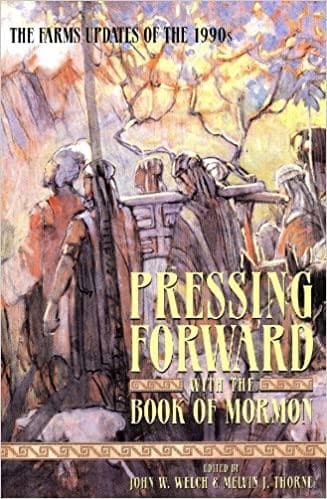Book
69 Chapters

“In the name of God, ye shall be struck dumb, that ye shall no more have utterance.” (Alma 30:49)
Alma’s curse on Korihor, “In the name of God, ye shall be struck dumb, that ye shall no more have utterance” (Alma 30:49), resembles an ancient Greek practice of cursing a litigant with speechlessness. When the curse materialized, divine disapproval was so clear that Korihor was compelled to yield the case.
Such curses were common in the ancient Mediterranean world, especially in the legal sphere. In recent decades, more than a hundred Greek and Roman binding spells—curses inscribed on small lead sheets that were folded up and pierced with a nail—have been recovered from tombs, temples, and especially wells near the law courts, where they were placed in hopes that a deity from the underworld would receive and act upon them. These spells are known as defixiones because their words and powers were intended to “defix” (restrain or hinder) an opponent. In ancient Greece, those targeted by these spells could be commercial, athletic, or romantic rivals, or adversaries in litigation.1
The largest body of Greek binding spells deals with litigation, with sixty-seven different defixiones invoking curses on legal opponents. The earliest of these date to the fifth century B.C. Eleven of them ask the gods to bind the tongue of a legal opponent so he would lose the lawsuit.2
Evidence suggests that occasionally these curses were apparently fulfilled. For example, a third-century-B.C. stela (an inscribed stone slab) from the Greek island of Delos expresses the gratitude of a victorious litigant who believed he had been helped in court by a god: “For you bound the sinful men who had prepared the lawsuit, secretly making the tongue silent in the mouth, from which [tongue] no one heard a word or an accusation, which is the helpmate in a trial. But as it turned out by divine providence, they confessed themselves to be like god-stricken statues or stones.”3
The speechlessness of Korihor, and to an extent the stunning of Sherem, was precisely the kind of sign or restraint that people in the ancient Mediterranean world expected a god to manifest in a judicial setting when false accusations or unfair ploys placed an opponent at a distinct disadvantage.
Stricken litigants often erected confession stelae. The inscriptions apparently were “a confession of guilt, to which the author has been forced by the punishing intervention of the deity, often manifested by illness or accident.”4 In hopes of appeasing the offended god, a punished litigant would inscribe on the stela a clear profession of his newly admitted faith in the deity and would warn others not to disdain the gods.
The trials of Sherem and Korihor show these same trends of confession. Sherem recanted his public teachings, confessed the truth of the god who had intervened against him, admitted his error, and expressed concern that he would never be able to appease that god (see Jacob 7:17–19). Korihor’s confession acknowledged the power of God, probably to assure those concerned in Zarahemla that the curse would not afflict any others, as well as to terminate the dispute (see Alma 30:51). Such reactions are similar to the responses of others in the ancient world whose judicial perfidy had been exposed and quashed by the intervention of a god responding to the restraining curse of a beleaguered litigant.
Research by John W. Welch, originally published as a FARMS Update in Insights (October 1998): 2.
1. See Christopher A. Faraone, “The Agonistic Context of Early Greek Binding Spells,” in Magika Hiera: Ancient Greek Magic and Religion, ed. Christopher A. Faraone and Dirk Obbink (New York: Oxford University Press, 1991), 11.
2. See A. Audollent, Defixionum Tabellae (Paris: n.p., 1904), nos. 22–24, 26–29, 31, 33–34, 37.
3. Faraone, “Early Greek Binding Spells,” 19.
4. H. S. Versnel, “Beyond Cursing: The Appeal to Justice in Judicial Prayers,” in Magika Hiera, 75.
Book
69 Chapters
Items in the BMC Archive are made publicly available for non-commercial, private use. Inclusion within the BMC Archive does not imply endorsement. Items do not represent the official views of The Church of Jesus Christ of Latter-day Saints or of Book of Mormon Central.